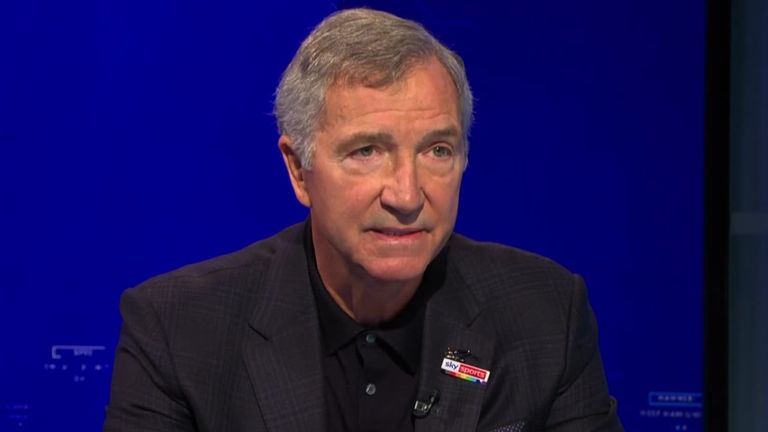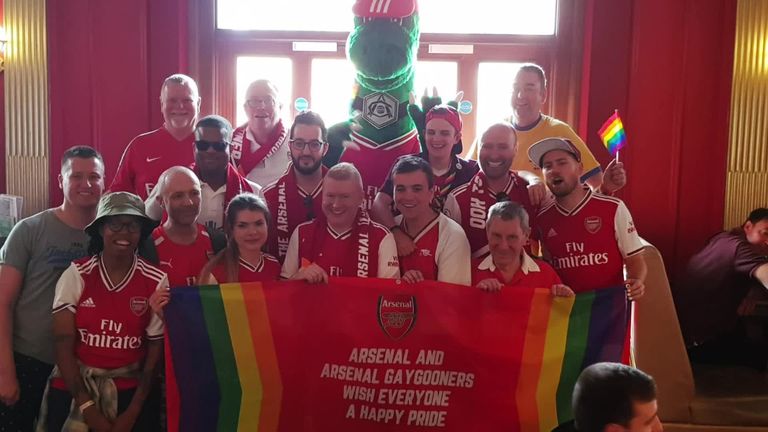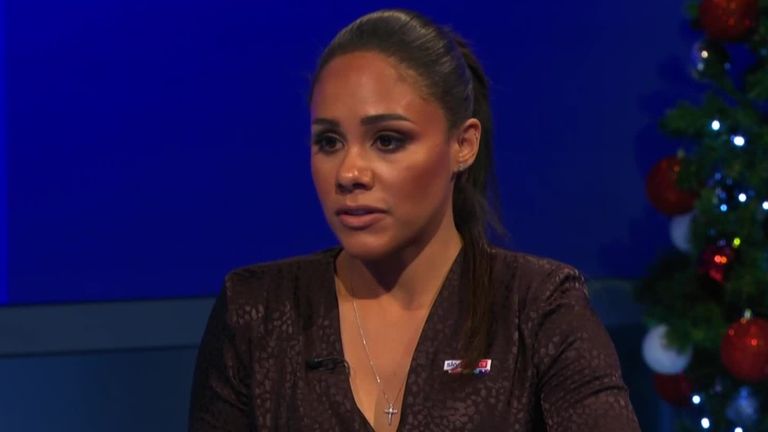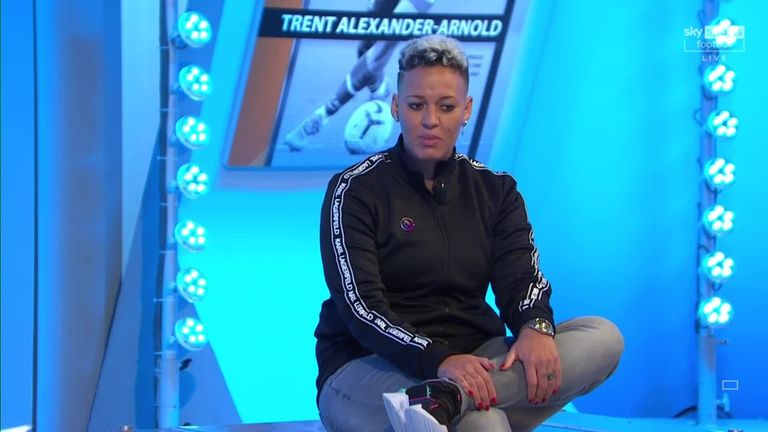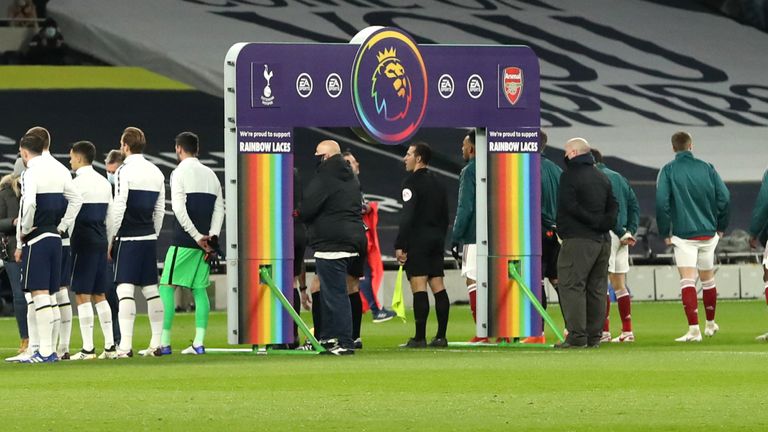Rainbow Laces: Graeme Souness and Alex Scott say culture of men's football makes coming out difficult
Homophobia will still be prevalent in some dressing rooms in men's football, says Graeme Souness on Sky Sports' Super Sunday, and calls for more education; fellow studio guest Alex Scott says open dialogue is vital, as football shows support for Rainbow Laces
Sunday 6 December 2020 18:14, UK
Graeme Souness says men's football must continue to work towards creating a more inclusive culture so that players who are gay or bi know they would be supported if they wanted to come out.
Souness, speaking in a Super Sunday discussion with fellow studio guest Alex Scott to mark the annual activation of the Rainbow Laces campaign, believes a number of difficulties still persist in the game on LGBT+ inclusion, such as homophobic language and behaviour in dressing rooms, and fears that they or their clubs may potentially lose lucrative sponsorship deals.
A year ago, the former Liverpool and Scotland star spoke on Super Sunday about his experience of attending the annual Brighton Pride parade in August 2019, describing how being part of the festivities "changed my attitude" about such events held by the LGBT+ community.
Reacting to a film showing Hector Bellerin on a video call with two fans from Arsenal's LGBT+ and allies group Gay Gooners, in which the supporters described the challenges they have faced relating to matchdays, Souness said: "How sad would it be if you're really passionate about something but you can't go to it because you're scared of abuse and that you won't be accepted?
"I teach my kids - 'every morning you wake up, try and learn something'. I'm a man in his 60s, I want to learn.
"I went down to Brighton and it was fascinating. The cross-section of people there, the atmosphere... I came away feeling richer for the experience.
"I had a really interesting day. I learned a lot, including about myself. The dressing rooms were homophobic when I was playing, and I'm sure it's still part and parcel today in some dressing rooms.
"It's going to be really difficult for that brave person to come out one day."
Scott, who won 140 England caps and spent the majority of her career at Arsenal, says she has always found the women's game to be welcoming of LGBT+ people.
In his conversation with the Gay Gooners members, Bellerin mentions the high level of scrutiny that Premier League footballers are under, and also the attention they receive on social media, and Scott says that contrast between the men's and women's games is noticeable and distinct.
"The amount of abuse that players already go through - to add that (coming out), it's another layer," said Scott.
"In women's football, the fanbase is different. The fans that show up there are not necessarily there to judge but to love the sport as a spectacle.
"That in turn rubs off on the players. They feel they're in a safe environment, and can be who they are and be open about their sexuality."
Recognising the impact of Rainbow Laces and the dialogue that the campaign generates, Scott is encouraged that awareness is growing on LGBT+ inclusion, to the benefit of everyone involved in the game.
"People shouldn't go to a football match and think that they're in an unsafe space or they have to argue with people because of who they are, being their true authentic self," she added.
"People openly talking about it and being supportive of everyone - these conversations need to be had."
On the prospect of a gay or bi male player coming out publicly, Scott says the overwhelmingly altruistic effect of such a decision could ultimately outweigh any concerns over negativity for that individual.
"It takes that one brave person - yes, they'll bear the brunt of it, but they'll open the door for other people."
Sky Sports is a member of TeamPride which supports Stonewall's Rainbow Laces campaign. If you'd like to help inspire others in sport by sharing your own story of being LGBT+ or an ally, please contact us here.


